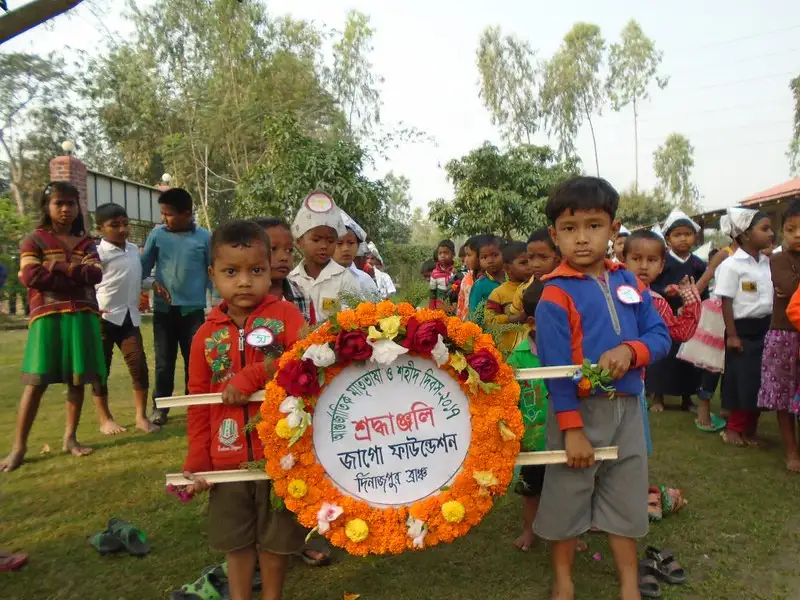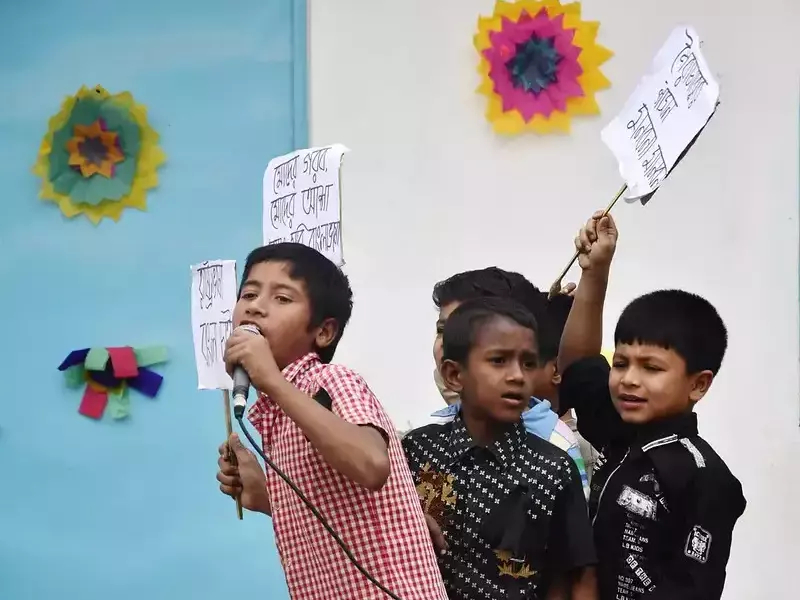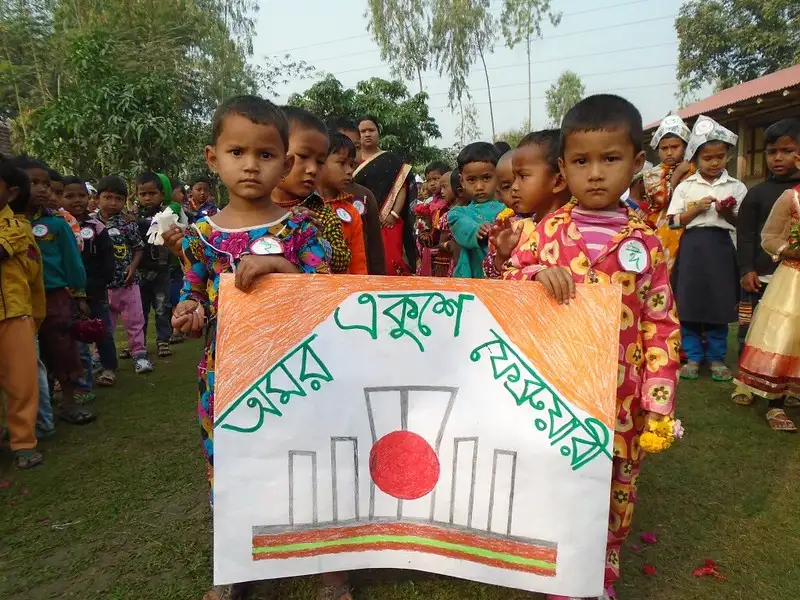Importance of International Mother Language Day

If you talk to a man in a language he understands, that goes to his head. If you talk to him in his own language, that goes to his heart
Nelson Mandela
This is a quote that resonates well with the 1,080 million non-native English speakers in the world. English has become a universal language, with 1,453 million speakers. While it is an excellent skill to be able to speak English, the importance of one’s mother tongue cannot be underestimated. There are over 7000 languages in the world, each with its own culture and history. On 21 February, each of these cultures is celebrated as a part of International Mother Language Day.
Why Was 21 February Chosen to Celebrate Mother Languages?
This is a story that is closely connected to Bangladesh. In 1947, Pakistan was formed, then divided into East Pakistan and West Pakistan. East Pakistan is what later became East Bengal and Bangladesh, and West Pakistan became modern day Pakistan. In 1948, the government of Pakistan declared Urdu to be the national language of both East and West Pakistan. This caused outrage among the citizens of East Pakistan as they had no connection to Urdu, and Bangla was their language. On the 21 February 1952 the students of Dhaka University organised a protest against this decree, which was met with violence and gunfire from the police. Hundreds were injured, and 5 people were martyred. The names of the martyrs are Abdul Barkat, Abdul Jabbar, Rafiquddin Ahmad, Abdus Salam and Shafiur Rahman.


On 17 November 1999, UNESCO unanimously declared 21 February to be International Mother Language Day. This was to commemorate those who died in the 1952 protests and to celebrate languages across the world.
The 1952 protests are testament to the vital role that languages play in shaping individual identities. Those who were martyred did not just die for their language but for their country’s freedom, culture and history. A good example of how language affects cultural identity is what happened in Bangladesh. Languages such as English, French and Spanish are widely used in many countries, but there are other, less well-known languages that are at risk of extinction. One of the least spoken languages in the world, for example, is Ongota. Ongota is a language spoken in South-West Ethiopia, and according to a UNESCO poll from 2022, it is understood by only 12 people. History has shown us the life cycle of many languages, but we have a collective duty to ensure that all languages and cultures are appreciated.
Cultivating Multilingualism: the Benefits of Multilingualism in an Interconnected World
Although learning English is vital in today’s job market, maintaining Bangla is equally as critical if we want to preserve the rich and beautiful history of Bangladesh. In today’s world, it is easy for English to overpower many people’s mother tongues. This is due to globalisation and an increasing number of people moving abroad. This country’s history is embedded in its language, and it is imperative to teach children about how their fathers and forefathers fought for their language.


Aside from the connections between language and culture, there are many other benefits to being multilingual. Studies have shown that knowing your mother tongue helps with cognitive and intellectual development. Children who know their mother tongue well will learn at a quicker rate than those who do not. It is also an asset in the job market. Those who can speak more than one language have a significant advantage over those who cannot when it comes to finding jobs. This does not just apply to the job market within Bangladesh, but also abroad. It is common in Europe for students to be fluent in 3+ languages. Typically, they include their mother tongue, English and at least one other European language. In Europe, it is necessary to learn multiple languages as the countries are so interconnected. In Bangladesh, the situation is slightly different but it is nonetheless important that school students study their mother tongue as well as English.
Education and Empowerment: JAAGO Foundation’s Commitment to Mother Language Learning
At JAAGO, we believe in the many benefits of learning multiple languages, which is why it is integrated into our school curriculum. Students learn English and Bangla from dedicated and skilled teachers. Even through our Digital Schools Program, students learn English and Bangla, so they can reap the benefits of knowing more than one language.
Learning languages involves much more than just memorising vocabulary and grammar rules. A thorough understanding of the culture from which the language comes from is necessary. You have to study literature, art, plays, history, etc, of the target language. This includes studying your mother tongue. Shakespeare plays a vital role in the English school curriculum, as does Goethe in the German curriculum. The arts have always been intertwined with culture and history, which is why JAAGO has a commitment to participating in cultural events. This year, we participated in the Dhaka Art Summit, which ran from the 3rd-11th February 2023. Our role in the summit was bringing light to what JAAGO does and showcasing some of our students’ creations. However, the summit as a whole is dedicated to bringing Bangladeshi art and artists to the global stage. There were many exhibitions celebrating the Bangla language.
On this day, JAAGO students pay tribute to the language martyrs who sacrificed their lives for the recognition and preservation of their mother tongues. The celebration reflects the spirit of cultural diversity and inclusivity as students from different linguistic backgrounds come together to cherish their native languages. Through various cultural programs and activities, students not only honor their own language but also learn about and appreciate other languages and cultures. Overall, 21 February is a significant day for JAAGO schools as it promotes the value of language and cultural diversity among students.
